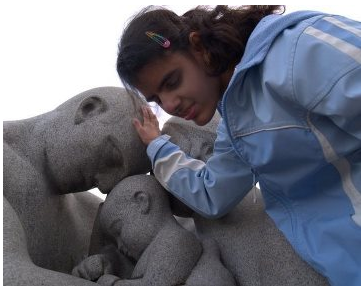OHOA Module: Concept Development and Responsive Environments

Learning Outcomes
- Recognize the impact of deaf-blindness on an individual’s development of concepts and incidental learning.
- Compare and contrast skill development and concept development.
- Recognize that trusting relationships are essential for the development of concepts about the self (and concepts about the self are essential for learning).
- Recognize the role of touch and exploration in the development of concepts and active learning.
- Identify the role of language and communication in the development of concepts.
- Describe methods for incorporating experiential learning and functional tasks.
- Apply deaf-blind strategies in the development of routines that support active learning and concept development.
Development Team
- Leslie Buchanan (Lead)
- Jennifer Hayes
- Chris Montgomery
- Lorri Peterson
- Shone Stagg
Use of this Module
This module is available for free on our website. We invite anyone to use these materials. Please note that NCDB does not provide CEUs, certificates, or confirmation of completion.
Suggested Citation
Buchanan, L., Hayes, J., Montgomery, C., Peterson, L., Stagg, S. (2015, September). Concept development and responsive environments. In National Center on Deaf-Blindness, Open Hands, Open Access: Deaf-Blind Intervener Learning Modules. Monmouth, OR: National Center on Deaf-Blindness, The Research Institute at Western Oregon University.
